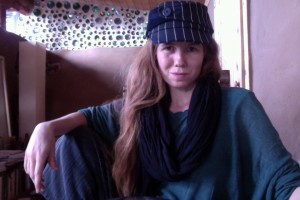
When Soviet forces liberated Poland from Nazi occupation after World War II, the struggle was far from over for Polish citizens. The Soviets installed a government under which workers were employed by state-owned businesses and could not organize or represent themselves. Independent unions were banned. Over the decades, frustration grew among workers and citizens, aggravated by the economic challenges of the 1970s. On June 30th, 1980, the government announced that it was going to reorganize meat distribution – which would result in an immediate 60% price increase and meat scarcity.
The very next day, strikes broke out in factories all over Poland. Workers seized shipyards and factories, keeping themselves safe from retaliatory violence by barricading themselves inside. The regime tried to isolate each strike, but the plan backfired and ended up encouraging the formation of discussion groups and associations for collective decision-making along newly formed networks.
The Global Nonviolent Action Database reports:
By July 15, fifty strikes had broken out or were still going on. Most of the strikes lasted for only a few days, enough to make management give in to some demands.
On July 17, in the city of Lublin, railway workers discovered a train filled with fish on route to the USSR. They shut down rail traffic by leaving trains and engines on the tracks. A large multi-industry strike paralyzed the city including buses, bread and milk delivery, nursing, construction, and water services.”
Strikes continued through the beginning of August. The shipyard of Gdansk joined the strike, along with the citizens of nearby cities who turned the workers’ strikes into a general strike. By August 17, twenty-four enterprises in the region were on strike. By August 18, the number had grown to 180. The Gdansk organizers launched an inter-factory committee comprised of delegates from each factory, then expanded the economic demands to include free unions, access to the media, repeal of all repressive measures and an end to certain ruling class privileges.
By late August, the inter-factory strike committee represented nearly 400,000 workers. They presented twenty-one demands to the regime. A deputy Prime Minister met with them for discussion in Gdansk and then in Szcecin. Negotiations at Szczecin were unsuccessful, but negotiations at Gdansk ended with the signing of the ‘Gdansk accords’ where the regime agreed to free unions, wage increases, and limits on censorship. Work resumed on September 1st, 1980. The inter-factory strike committee grew into the Solidarity free national trade union. Later, Solidarity became a political party and emerged as a powerful force that, in 1988-89, led the struggle to convert the communist government of Poland to a multi-party democracy. Gdansk shipyard electrician Lech Walsea (one of the leaders of the 1980 strikes) became the president of Poland from 1990-1995.
Learn more on the Global Nonviolent Action Database: http://nvdatabase.swarthmore.edu/content/polish-workers-general-strike-economic-rights-1980
Photo Credit: By Borys Kozielski – Own work, CC BY 4.0, https://commons.wikimedia.org/w/index.php?curid=41283342
This article is from Rivera Sun’s book of nonviolent histories that have made our world. Click here for more information.
______________________________________

Rivera Sun is a change-maker, a cultural creative, a protest novelist, and an advocate for nonviolence and social justice. She’s a love-based revolutionary and the author of The Dandelion Insurrection, The Way Between and ten other fiction, non-fiction and poetry books. Her essays and writings are syndicated by Peace Voice, and have appeared in over a hundred journals nationwide. Rivera Sun speaks and facilitates workshops in strategy for nonviolent change across the country and around the world. She connects the dots between the issues, shares solutionary ideas, and inspires people to step up to the challenge of being a part of the story of change in our times. www.riverasun.com